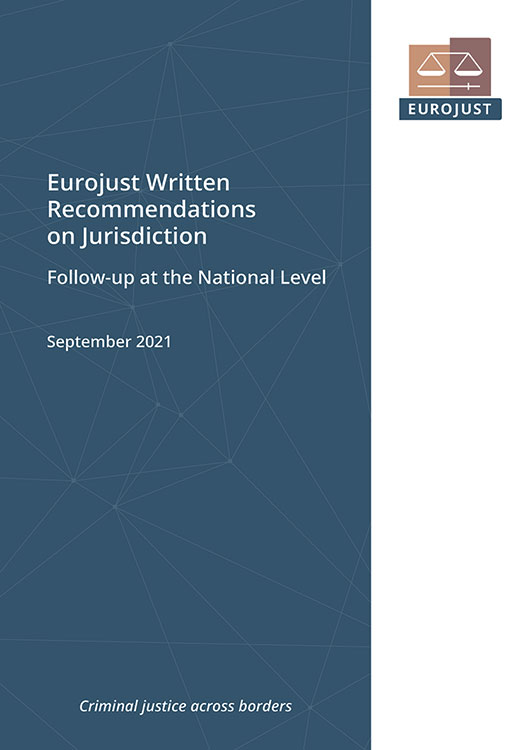Written recommendations on conflicts of jurisdiction, proposed by Eurojust, were practically always accepted by the competent national authorities involved in the period between 2016 and 2019. This is one of the main conclusions from the report ‘Eurojust Written Recommendations on Jurisdiction, Follow Up at National Level’, which was published today.
- [Full report] Eurojust Written Recommendations on Jurisdiction: Follow-up at the National Level
- [Leaflet] Eurojust Written Requests on Jurisdiction in a Nutshell
In view of the ne bis in idem principle, any particular criminal offence can only be prosecuted once across the European Union. With the strong increase of cross-border crimes, this principle often leads national authorities to ask in which jurisdiction prosecution can best take place to avoid potential conflicts, legal challenges and duplication of judicial activities.
The Eurojust Regulation offers the legal framework to tackle such scenarios by giving National Members the power to issue reasoned written requests on which national authorities are best placed to undertake an investigation or prosecute specific criminal acts.

Eurojust Written Recommendations on Jurisdiction: Follow-up at the National Level
View reportThe report by Eurojust presents an in-depth assessment of the legal and practical circumstances of particular cases in which the Agency issued written requests on jurisdiction. Usually, they concern joint requests by two or more National Members at Eurojust (and/or Liaison Prosecutors*), who have been involved in the case. The proposed solution is based on an in-depth legal and factual assessment of the specific circumstances of the cases, as detailed in the Eurojust Guidelines for deciding which jurisdiction should prosecute.
Such joint requests concern the following situations:
- parallel proceedings ongoing in different Member States concerning the same facts and the same suspects, so their continuation could lead to an infringement of the ne bis in idem principle (conflict of jurisdiction in the strict sense)
- the offences and suspects investigated in two or more countries are not identical but closely connected and mutually dependent, and a possible concentration of the proceedings in one country would be more effective in the interest of justice
Following the issuance of a written request, Eurojust continues to assist national authorities with the execution of requests for transfer of proceedings in line with the recommendations. This could concern translation matters, for instance, or dealing with delays in the actual transmission of documents.
*Ten third countries currently have Liaison Prosecutors at Eurojust: Albania, Georgia, Montenegro, North Macedonia, Norway, Serbia, Switzerland, Ukraine, the United Kingdom and the United States.
